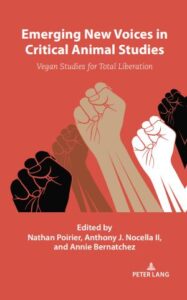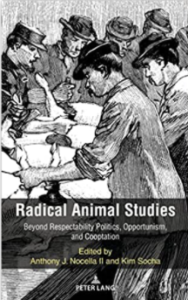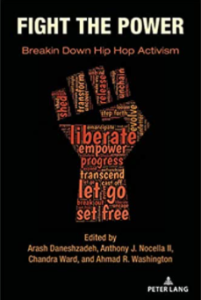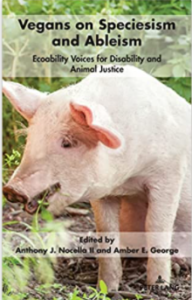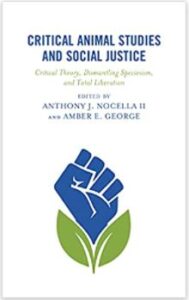Pamela June
From Rural to Urban Classrooms: Animal Liberation in Post-Secondary Education
By, Pamela June, Assistant Professor of English at Ohio University (Eastern Campus)
Abstract
As more students enroll in college and university courses, faculty are seeing an unprecedented number of students from diverse and historically underrepresented backgrounds. Whether from underprivileged farming communities in rural areas, or poor school districts in inner cities, students bring different skill sets and different ideologies into their post-secondary education.
This presentation will draw on my experiences teaching at a southern, inner-city HBCU (historically black college/university), and at a northern, rural PWI (predominantly white institution) to explore how issues of critical animal studies must be considered differently as a theoretical and pedagogical lens. While major differences exist between these groups of students, some striking similarities remain, and it is in these similarities where, as educators, faculty can begin to explore critical animal studies. This presentation will begin by offering examples of experiences in both urban and rural classrooms and will then explore specific lesson plans which included issues of critical animal studies. The presentation will conclude by inviting suggestions from the audience about appropriate and successful uses of CAS in the classroom.
Bio
Pamela B. June is an Assistant Professor of English at Ohio University’s Eastern Campus. She earned her Ph.D. (2009) and M.A. (2005) in English Literature and Criticism from Indiana University of Pennsylvania, and her B.A. (2004) in English from the University of Pittsburgh. Originally from Johnstown, Pennsylvania, June has taught at IUP (2007-2010) and at Paine College (2010-2013), an historically black college in Georgia, before joining the faculty at Ohio University in 2013. She teaches Women’s Literature, American Literature, and Writing, and she researches and publishes on women’s literature. Her current project, a book examining ecofeminist issues in Alice Walker’s fiction, is forthcoming from University of Illinois Press.

